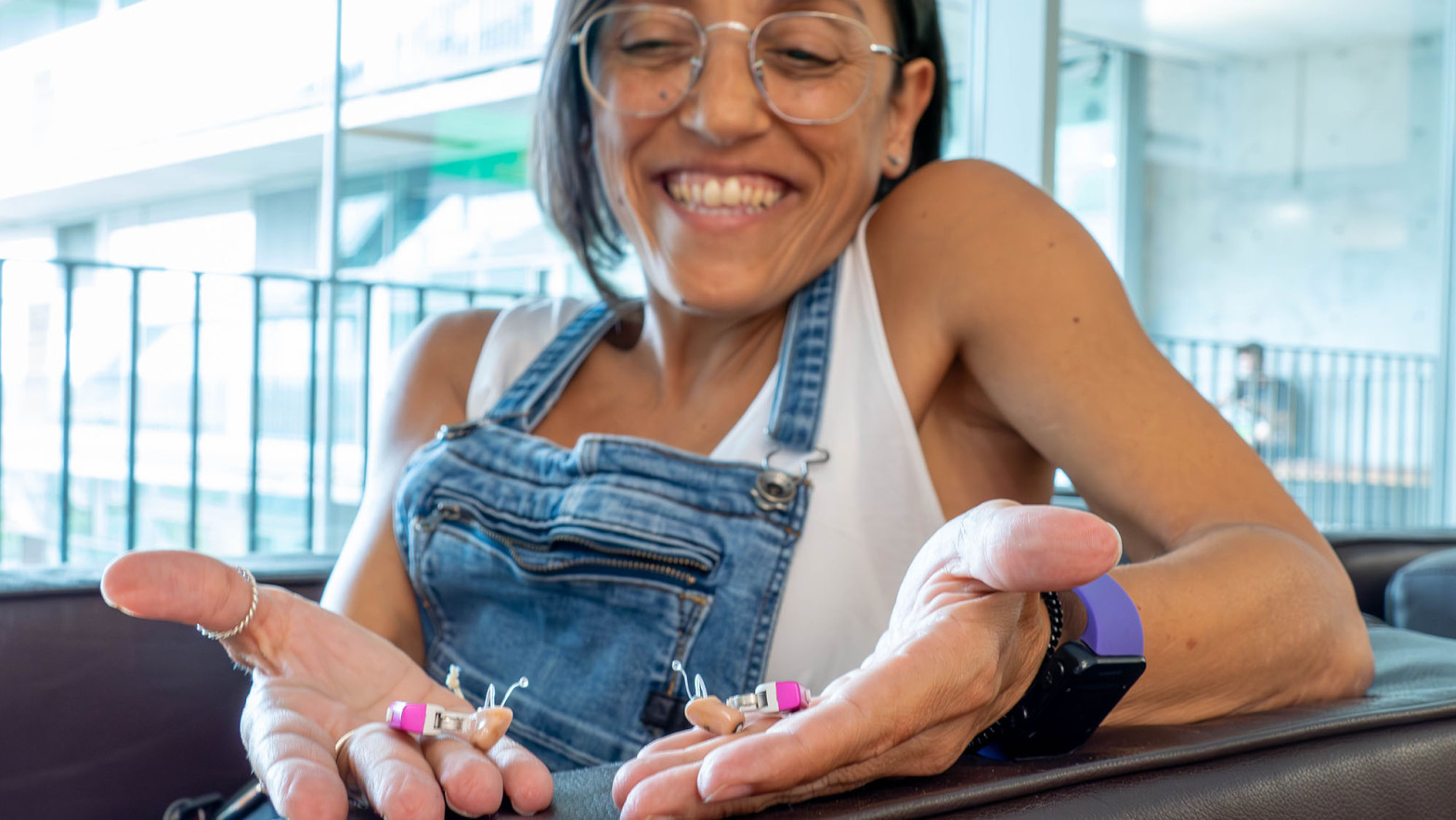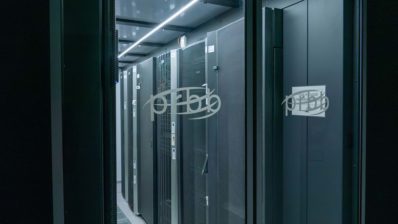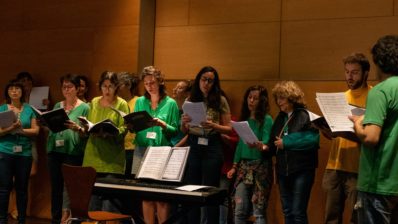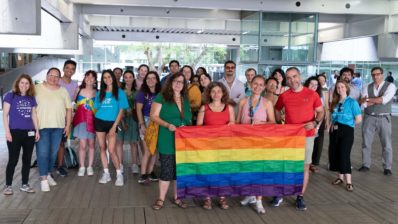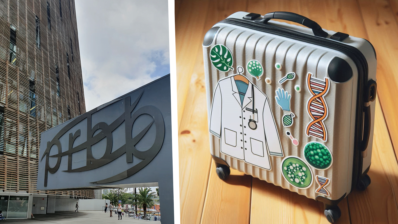The end of September celebrates, since 1958, the International Week of Deaf people, with the 23rd of September proclaimed the International Day of Sign Languages, by the United Nations; this year with the theme “A World Where Deaf People Everywhere Can Sign Anywhere!”.
According to the World Federation of the Deaf, there are more than 70 million deaf people worldwide, who collectively use more than 300 different sign languages.
Judit Sainz is one of them. She works at the Institut de Biologia Evolutiva (IBE: CSIC-UPF) giving administrative support to different research groups of the Institute, and in this guest post, she takes the opportunity to tell us what it means, in her case, to be deaf, and she reflects about invisible disabilities in general.
Let me be clear: I believe that social integration of people with a disability, no matter which one, is essential for our society. But we are still not there.
In my opinion, there’s no person better than another, and there’s none who is “less capable” of doing anything. Everybody, in one way or another, needs help from somebody else. So I raise a very simple question: why are we classifed as disabled people?
We all deserve, and of course have the right, to have the same opportunities as everyone else.
Yes, we have one or some of our senses missing, but that doesn’t mean we are lesser persons. For instance, you would have never noticed that I am deaf and that I use hearing aids if I hadn’t told you, or showed you my lovely pinky hearing aids that I am so proud of.
The weight of invisibility
Because deafness is not visible, and you can’t appreciate it in the first place, deaf people often find it even more difficult to get help of all sorts than someone with a more visible disability, for example a person in a wheelchair or even a blind person. Obviously, we all deserve the help we need on a daily basis, whatever our disability – or even people with no disability! Every need is different. In the particular case of invisible disabilities, one of the burdens is having to explain our needs constantly, because they are not obvious. Or being miscategorised as rude, or fools, for not behaving in the expected way.
I will tell you an anecdote that happened to me when I started working here at the PRBB. This was 14 years ago, and I still was not using hearing aids, since my hearing was still not so bad (I have a degenerative disease) – or at least I hadn’t realised it was. I used to work at the fourth floor, in an office with four more people. As I walked in everyday, I would normally say: “Good morning!”, but I never heard any answer. That made me feel really left out, to the point that one day I turned around and asked them why were they being so rude. They answered they had said ‘morning back to me every single time. But I had not heard them.
In the case of invisible disabilities, such as deafness, one of the burdens is having to explain our needs constantly, because they are not obvious at first sight.
The same happens when I am working and someone comes and says something to me from my back. I may not hear it and, if I don’t see them, I’m not aware they are talking to me. They will probably think I am rude, or if I later interact with them, unware of what happened, they might be confused, and think I’m a fool. This is, in fact, a constant battle: to not be branded as a fool because people don’t understand our behaviour.
There’s more examples of ‘invisible needs’ for deaf people that society in general doesn’t normally think about. For instance, whenever a deaf person has to go to a doctor’s appointment, they need help from someone who knows sign language to interpret. And that often means having to wait longer, until there’s an interpret available. Thankfully, technology has allowed for lots of improvements, for example through video calls and so on, but they still are not enough.
Understanding each other
It is important to be aware of the others, to understand each other’s needs. And this understanding, and the effort it requires, has to come from both sides. For example, it would be interesting for people – no only deaf people, but anyone – to learn Sign Language, so deaf people could communicate in an easier way with others. Yet it is difficult, because even though Catalan Sign Language (LSC), for example, was recognised as an official language in 2010 by the Catalan Parliament, it has still not been approved as a permanent education activity from the Department of Education. So, while we learn English or French in schools as second languages, there is no option to learn Sign Language – only one school in Barcelona, Tres Pins, offers bilingual education, with one of the two languages being a sign language. But learning LSC or any other Sign Language should be accessible for everyone, not only deaf people or those with deaf or hard-hearing relatives.
It is important to be aware of the others, to understand each other’s needs. And this understanding, and the effort it requires, has to come from both sides.
I believe we should be more empathic. We are not just numbers, we should not be left aside or be required to do so such an extra effort in most of things in our daily life. We should be given that extra help, sometimes just small things, that can make a difference. For example, something as simple as talking on the phone was really difficult for me. Wearing hearing aids and because of where the phone loudspeakers are located, I could not hear properly. Now, after quite a while, I have been given a mobile to which I can connect my hearing aids via bluetooth, making it so much easier.
Another example of a simple but useful thing, in this case for blind people, is the voide in the elevators, indicating when doors open and close, or the floor number, as it happens now at the Parc de Recerca Biomèdica de Barcelona (PRBB) – though only in one elevator…
All in all, I think some things are improving, but not fast enough. I hope the celebration of the Day of the deaf, which this year in Catalonia will be on the 30th of September, brings out the recognition of the rights of deaf people all around the world.
The theme for 2023 International Day of Sign languages is “A World Where Deaf People Everywhere Can Sign Anywhere!”. The fact that there’s so much diversity of sign languages shows the considerable weight Sign Languages have, or should have, in our society. Maybe this weight, united, will be a force for change.
This opinion article was written by Judit Sainz (IBE), who has been working at the PRBB for over 15 years.

